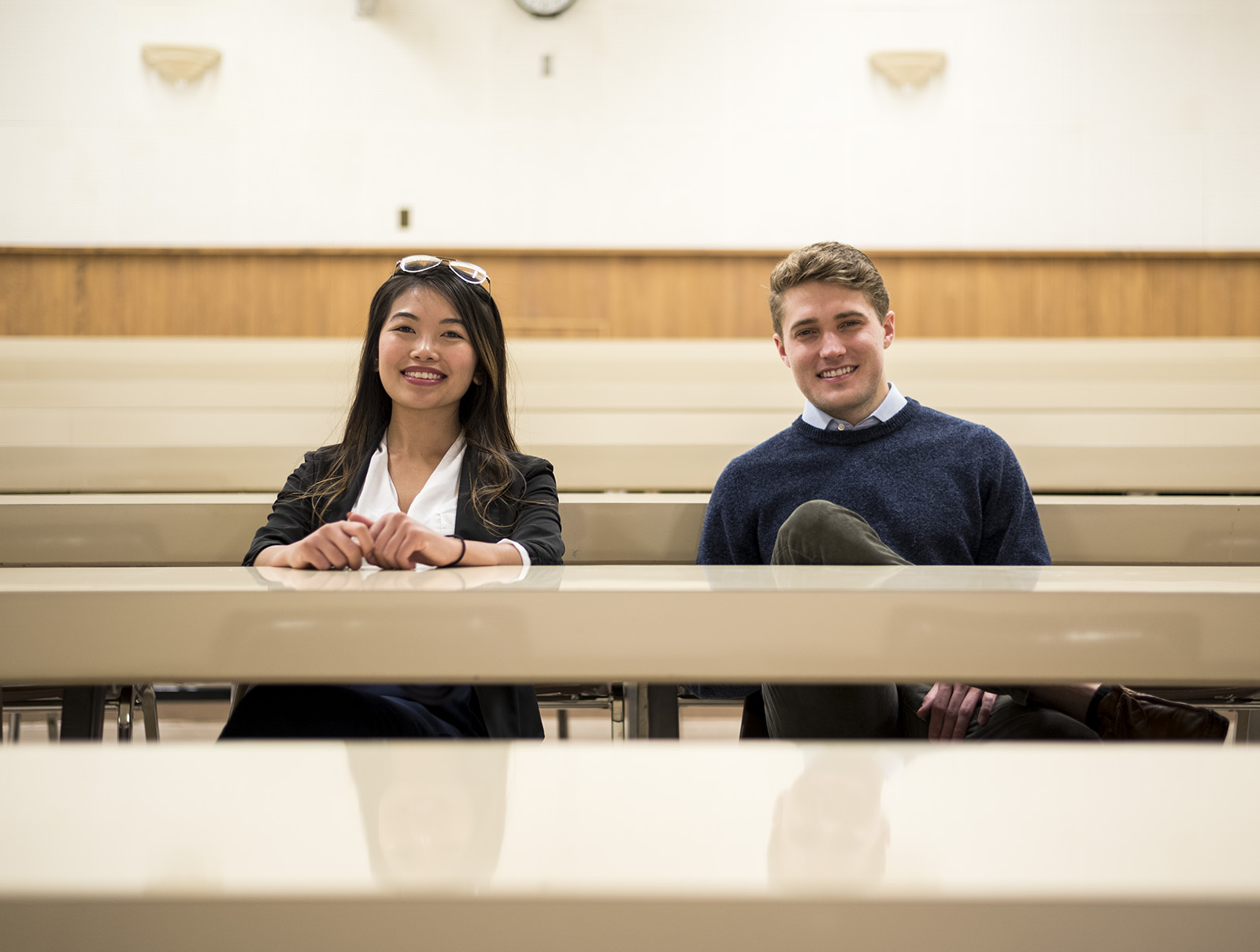UCLA law students win first place for carbon emission-combating startup

Mote, a startup company that aims to reduce carbon dioxide emissions in public transportation, won first place in the Lowell Milken Law Institute-Sandler Prize for New Entrepreneurs. (Joe Akira/Daily Bruin)
By James Wang
April 19, 2018 12:36 a.m.
Two UCLA law students won $70,000 for creating a startup that recycles carbon dioxide emissions from vehicles into plastic.
Mote, a startup company that aims to reduce carbon dioxide emissions in public transportation, won first place in the Lowell Milken Law Institute-Sandler Prize for New Entrepreneurs on April 11. The competition consisted of two stages of written business plans, with six finalists presenting on their ventures in the final round.
Mac Kennedy, a UCLA law student and co-founder of Mote, said the company creates filters designed to trap carbon dioxide emissions found in bus exhaust. Mote then periodically sends out employees to replace the filters and recycles the trapped carbon compounds into plastics and fuels.
“We recycle the carbon dioxide captured by our filters into ethylene, a basis for plastics, so we can keep fossil fuels and natural gas in the ground,” Kennedy said.
Kennedy said Mote’s product traps carbon dioxide emissions more cost efficiently than traditional carbon-capture systems because it is designed to modify buses after production.
“We’re an after-market product, so we can provide after-market services at affordable prices, which allows us to drive costs down,” Kennedy said.
Mary Vu, a UCLA law student specializing in business and co-founder of Mote, said Mote targets school transportation and other large bus systems because their centralization drives Mote’s costs down by providing a single location for filter replacement.
Kennedy said he was inspired to create Mote after learning from a United States Energy Administration report in 2017 that transportation overtook electricity as the leading producer of carbon emissions in the country. He added he thinks climate change is a serious problem that needs to be dealt with more aggressively.
“(Transportation emissions) were a huge gap that we thought our product would be able to close,” Kennedy said. “We can’t wait several decades to solve the problem.”
Vu said the Sandler Prize competition consisted of two phases: a development phase during which teams engineer their product and a final phase during which teams learn to pitch their product with the help of industry mentors.
“You really don’t know your blind spots until you’re through the wringer,” Kennedy said. “There were many sleepless nights and early mornings and rushed meetings after classes – it was all hands on deck.”
Joel Feuer, executive director of the Lowell Milken Institute for Business Law and Policy, said Mote won the competition because it is a business venture with a lot of potential. He added he thinks they helped address climate change effectively by choosing a specific form of transportation to target, and that Vu and Kennedy were resourceful in finding experts in carbon capture to consult when developing their enterprise.
“It looks like they can create a sustainable business,” he said. “(Entrepreneurship) is what we want in all UCLA students, who can think several steps ahead.”
Feuer added he thinks the Sandler Prize is important for helping UCLA law students explore entrepreneurship and develop their professional skills.
“The competition gives students an opportunity to collaborate to make a venture come to life,” he said. “That’s what lawyers do with their clients all the time.”
Vu added Mote will use the prize money to start mass-producing its product and will develop a full-scale prototype that can be certified by the California Air Resources Board.
Kennedy said Los Angeles is the perfect incubator for Mote because of the city’s leadership in addressing climate change that can be seen in the zero waste LA program and UCLA’s research in climate change technology. However, he added he would like Mote to eventually expand operations beyond Los Angeles.
“Because this is a global problem … we hope to bring our solution to as many cities as quickly as we can to share responsibility for the planet,” he said. “We can’t wait any longer.”


